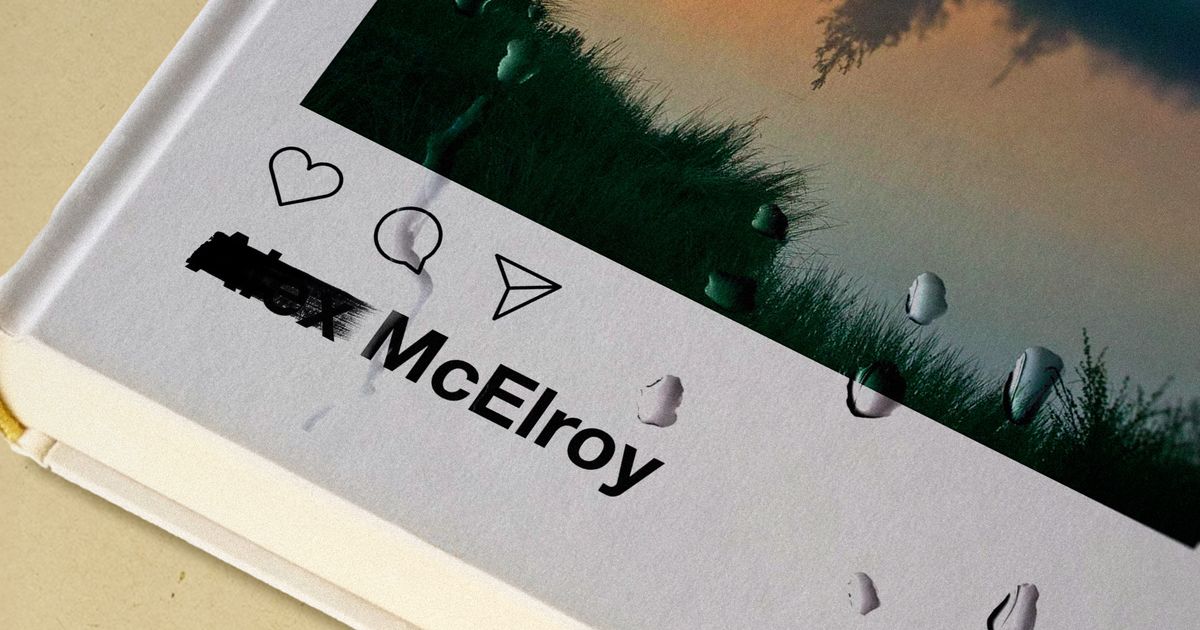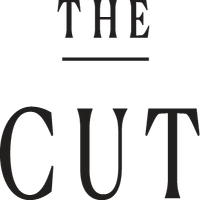In May 2021, I hit the high point of my young writing career: I published my debut novel, The Atmospherians. But there were two problems. The first was that I published it under the wrong name. The second was that I didn’t even realize I’d done this.
,The name on my book cover wasn’t technically wrong. It was my name: Alex McElroy. The name I’d been using all of my life. I’d scribbled it in the upper-left corners of envelopes and bubbled it into Scantron tests. I’d rubber-stamped it on priceless possessions before moving across the country. During particularly rough stretches of writing my novel — which took about five years to write; there were plenty of rough stretches — I would fantasize about seeing “Alex McElroy” glitzed across the front cover, the book squeezed on shelves between Cormac McCarthy and Ian McEwan.
,But shortly after the novel was published, the very thing I’d been hoping for became a source of anxiety. There was something off about seeing the name Alex on the cover. At the time, I couldn’t articulate why it felt so weird. But every time I held up a copy or shared a review or an interview, I would feel a splinter of shame.
,A year before the book was published, I came out as nonbinary. At the time, I thought myself fortunate for being named Alex. What luck that my name veered seamlessly between genders. Perhaps my parents knew something I hadn’t.
,But a name is only gender neutral if no one has ever used it to gender you. Alex wasn’t gender neutral — it was passive. It put the work of gendering onto anyone who interacted with me. For 30 years, people looked at me, heard my name, and assumed I was male. However neutral the name aspired to be, it had been kicking around for thousands of years before I existed, collecting its own expectations and habits. Intentionally or not, all the Alexes who came before me set the terms for how I would be perceived. Even alone, I couldn’t see the name without seeing the ander I’d hacked off the end, knowing the second part of my name, so inexhaustibly masculine, waited for me on bank statements and my ID.
,This anxiety over my name wasn’t anything new. I had hated my name as a child. In retrospect, that was likely the first sign that something felt off about my gender. It wasn’t Alex that I hated, it was Alexander, its brassy humorlessness and rigidity. The name aspired to something I didn’t want for myself. Every chance I got as a kid, I begged my mom for a different one — but she loved Alexander for all the reasons I hated it. She was hesitant to hand over renaming privileges to a child who couldn’t pour their own milk.
,,When I was 6, I went rogue at her company’s Christmas party. Plopped on Santa’s lap, I asked him for the gift I’d been chasing my entire life: a new name. I remember my mom rushing me out of the room before I could request a second gift, assuring everyone we passed that I hadn’t meant what I’d said.
,Twenty-seven years later, and only a few months after my novel came out, it was clear that I’d very much meant what I said. I promoted the hardcover book amid a pang of quiet discomfort. Seeing the novel in the world forced me to see how others might see me. I grew to despise my author photo, which seemed so aggressively Alex. In the occasional Goodreads review — which I know I shouldn’t have read — readers sometimes assumed I was a man. This made me paranoid at events, nervous a moderator might introduce me using the wrong pronouns (though thankfully no one ever did).
,Nine months after The Atmospherians came out, while toiling away at an artist residency in Maine, I started writing a new short story about a character named Isle, which was loosely based on my life. Each morning, I would scribble forward in this fictional world, pleasantly reading sentences aloud that featured the name. After a week of writing this story, I texted a friend, “Would it be funny if I changed my name to Isle?”
,He knew what I was trying to say. “So you’re telling me you want to change your name to Isle?” he replied.
,The next week, I sent a group text to the other artists at the residency informing them my name was now Isle. Maine proved a perfect place to make this transition. No one there knew me before I arrived. Isle crowded out Alex within a few hours. Better yet, here was a place I could practice learning to hear my own name, which I needed after 33 years of responding to “Alex.”
,Those first few weeks responding to “Isle” were enchanting and disorienting. I couldn’t believe the name was actually mine. When I returned home to New York, I loved hearing it emerge from my partner’s lips, loved when friends would text screenshots showing “Isle” in their contact list. Renaming myself has made me illegible to others, especially strangers, who now tend to pause before gendering me. And it’s made me more legible to myself. It is, simply, a name that doesn’t feel wrong. And I had no idea how wrong my deadname had felt until it was no longer mine.
,The same week I changed my name, I sold my second novel, People Collide. On the cover of the novel, set to publish this week, “ISLE MCELROY” hovers as confidently as a crown in black sans-serif font on top of the title.
,Seeing it makes me wish I’d changed my name before I published my first book. I feel conflicted whenever I see it. I don’t hate the writing, but I flinch at the cover. When I sign copies, I cross out my deadname and write “Isle” above it. If booksellers ask where to position signed stickers, I tell them to conceal the first name. This might be a poor marketing strategy. Once they apply the stickers, McElroy floats lonesomely on the cover, a last name awaiting a first, a name soon to arrive.
,,Related

